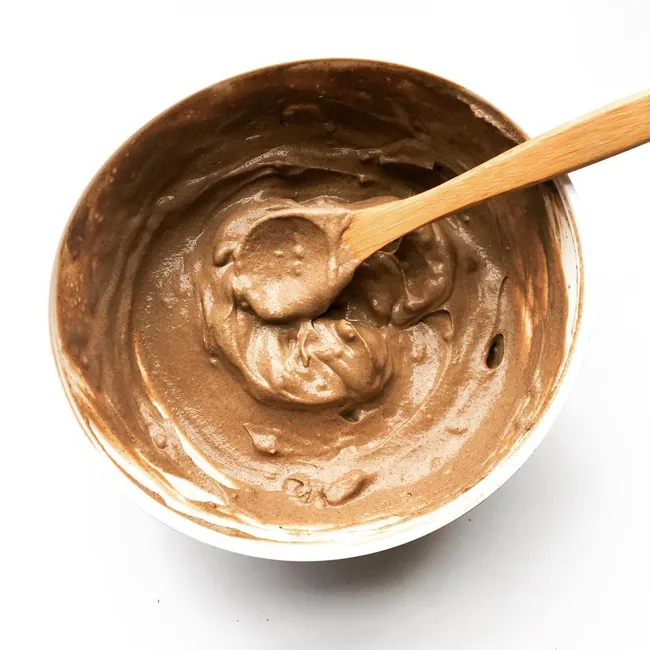
Rhassoul is a term that comes from the verb rassala “to wash” in Arabic. It is a mineral clay, 100% natural of volcanic origin from the Moroccan Atlas.
After discovering its many cosmetic properties, Moroccan women have used it for centuries to wash their hair and body.
Rhassoul resembles green clay but does not have the same properties: it coats the hair and softens the skin. It is generally used in face masks, but its use has diversified.
Origin of rhassoul and sustainable development

The only known deposits in the world are located in Morocco , in the Moulouya valley 200 km from Fez on the edge of the Middle Atlas.
These deposits extend over an area of nearly 2500 ha. An average of 2,700 tonnes of ghassoul are produced per year to ensure all national consumption.
The inhabitants of the region are responsible for extracting the clumps of ghassoul, transporting them and cleaning them. Part of it is reduced to powder.
Rhassoul is then sold in lumps or even in powder form.
Composition and properties
Of volcanic origin, Rhassoul is composed of silicon, magnesium and lithium . Rhassoul is known for its very high absorption capacity (1.66 times its weight in water). Furthermore, Rhassoul has a very high cation exchange capacity, which denotes very good adsorption properties . It is these absorption and adsorption properties that allow Rhassoul to effectively eliminate fats and impurities and make it famous as an “earth that cleanses”.
Thanks to its exceptional saponifying power, it cleans and truly cleanses oily or acne-prone skin of its impurities and gives shine and plumpness to oily or fine hair.
It makes the skin silky like that of babies.
Economical and ecological
Used as is, rhassoul is a cosmetic product in itself. It allows you to wash your hair and clean your skin. Simply add water or use it in powder form as a solid shampoo.
The carbon footprint of rhassoul is almost zero, because it is sold as is without any chemical treatment.
Rhassoul is 100% biodegradable. In addition, when wet, it can be reused up to 1 week later, provided you keep it cool.
Principle and properties of ghassoul:
Rich in minerals, with exceptional hydrophilic properties, rhassoul absorbs impurities, dead cells and fatty substances which are eliminated during rinsing. Thanks to its fine particles, the scrub acts by stimulating cell renewal in the deeper layers of the skin while eliminating dead skin. The epidermis is nourished, purified and refreshed.
Rhassoul in the hammam
Rich in minerals , Rhassoul is an excellent ingredient for taking care of the skin and hair. It is used in essential hammam rituals . In Morocco, recipes for preparing and using Rhassoul are passed down from mother to daughter. It is often mixed with rose hydrosols, orange blossom hydrosols, argan oil or essential oils to enhance their scents.
During the preparation of the bride in the hammam, the latter is coated with rhassoul paste all over her body.
Unlike henna, ghassoul does not color, there is no risk of getting it everywhere in the hammam or in the shower, it cleans very easily.
Rhassoul in all its forms
Due to its notoriety and effectiveness, rhassoul is used more and more throughout the world. Fans of home or DIY cosmetics, as well as those of noo poo (no shampoo), have literally adopted it.
Generally, it is found in tablet form, but it is increasingly sold in powder or paste form.
- Ghassoul in Sequin
It looks like dry earth. It can be reduced to powder if desired.

- Ghassoul powder
This is ghassoul reduced to a fine powder. So fine that it can be used as a solid shampoo.

- Rhassoul Paste ready to use
Rhassoul paste is a smooth and homogeneous paste . It is available in a scented pot or made with a natural ingredient such as argan oil.
